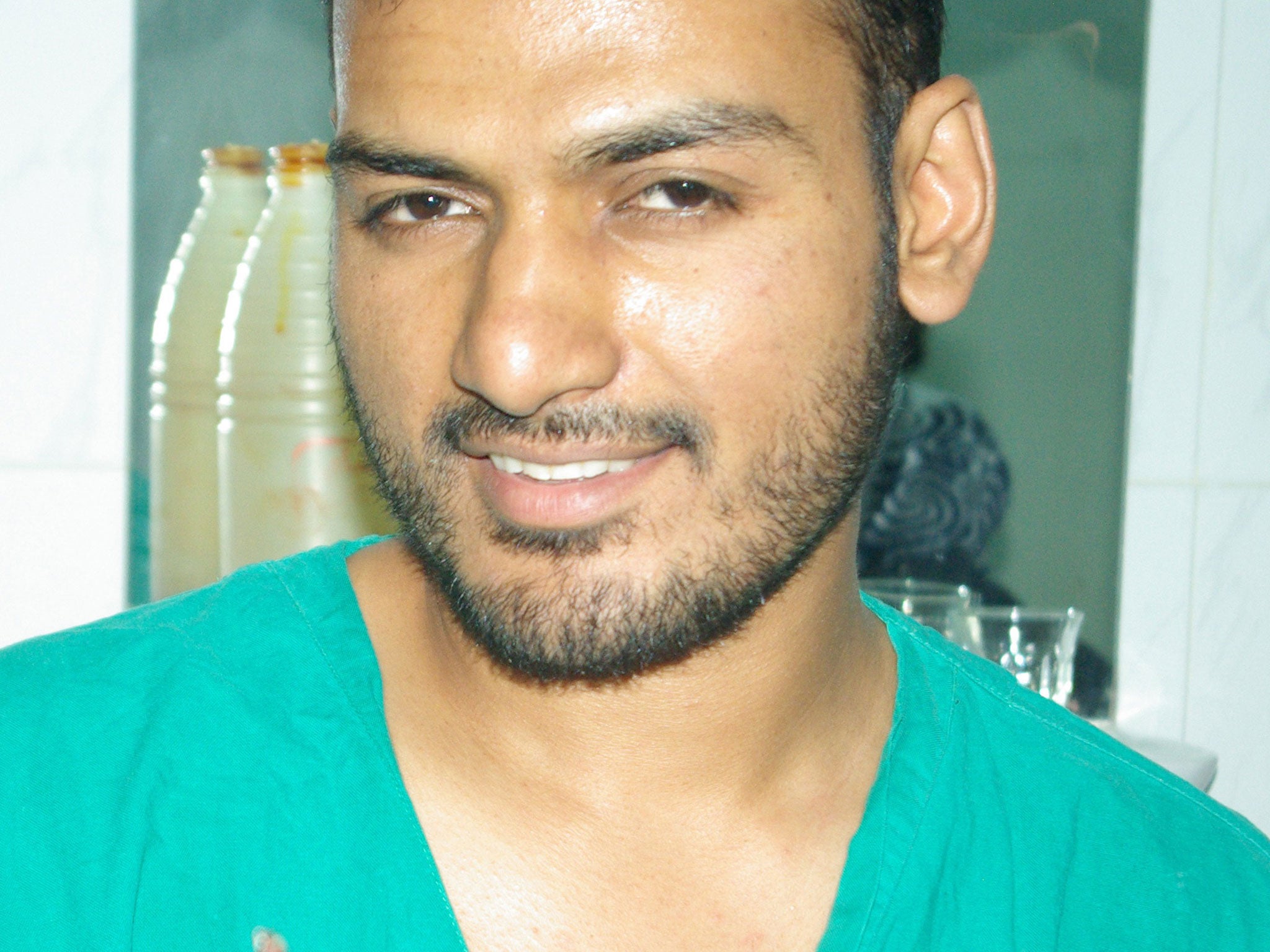Doctor Abbas Khan: Orthopaedic surgeon arrested on a humanitarian mission who died after a year in a Syrian prison

Abbas Khan was a British doctor whose altruism took him to Syria to help with the long-running humanitarian crisis in that ravaged country. But he was plunged into a nightmare year of torture and confinement which ended in a lonely prison death.
Few accept the assertion of the Syrian government that he took his own life, particularly since he had been told he was only days away from being allowed home to Britain. The Syrian claim was utterly rejected by his family while the British government starkly declared that he was "in effect murdered." The Respect MP George Galloway, who had been negotiating with the Assad regime for his release, said it was inconceivable he had committed suicide, describing his death as "murder most foul."
The Khan family had been looking forward to welcoming him home for Christmas. According to his sister Sara he had said in a recent letter, "I can't wait to be back with you guys." They now describe themselves as "devastated and distraught." The family were also highly critical of the Foreign Office, complaining that they had received very little assistance and adding: "We are British citizens, and in our time of need the British government has forsaken us. My brother has been abandoned by his government."
The timing of the death raises important questions concerning the authority of President Assad, who had been personally involved in the decision to set the doctor free. The question arises: was someone in the government or intelligence apparatus intent on scuppering an Assad initiative towards a softer approach?
Abbas Khan was by no means the first medical casualty of Syria's civil war: the regime and various factions have been accused of targeting medical staff. Doctors and opposition organisations say more than 100 physicians have been killed while hundreds more have disappeared. In September the UN said it was alarmed by "the deliberate targeting of hospitals, medical personnel and transports."
Aged 32, from a family of Indian origin, Abbas Khan was born in London. He was married with two children, a six-year-old son, Abdullah, and a seven-year-old daughter, Rurayya. An orthopaedic surgeon, he worked at the Royal National Orthopaedic Hospital in Stanmore, north London and had previously worked at the Epsom and St Helier University Hospitals NHS Trust.
He left for the Middle East last year on a personal humanitarian mission after being moved by reports of huge numbers of civilian casualties. He flew out first to Turkey and then crossed into Syria, where his intention was to work as an emergency surgeon, but he was arrested within 48 hours of his arrival. It was some months before his family received confirmation that he was alive.
In letters home he said he had lost 40 to 50 per cent of his body weight due to repeated bouts of diarrhoea and chronic dermatological infection. When his mother Fatima was allowed to see him she found that "he was like a skeleton and could barely walk." He said he had been tortured and kept in dank cells infested with rats and lice. At one hearing, he said, he had been "accused of treating dying civilians, women and children – which has been classed as an act of terrorism."
Complaining of deteriorating mental health, he wrote that he had experienced "repeated and severe beatings, largely for no reason other than the pleasure of my captors." He suffered, he said, from "almost constant depression and suicidal ideation." He added: "I have been violently forced to beat other prisoners, kept in squalid conditions, denied access to toilets or medical treatment. I have also experienced male prisoners being beaten to death and female prisoners screaming as they were being abused."
His mother, who spent months in Damascus campaigning for his release, was told she could visit him on Monday last, but was then informed that he had died. The authorities insisted he had committed suicide by hanging himself with his pyjamas. His sister Sara said of him: "My brother is my hero. He didn't die in a normal way, he died trying to make a difference. Some could say he was naive for going out there and risking his life but he went out there because he knew his skills could help. He did something that he believed in and made an example for other people to do things."
His brother Afroze, who is also a doctor, said: "An innocent life was taken meaninglessly. He was the best brother I could have ever asked for and I know no one with a purer heart than him."
Abbas Khan, orthopaedic surgeon: born London 1981; married (two children); died Syria December 2013.
Subscribe to Independent Premium to bookmark this article
Want to bookmark your favourite articles and stories to read or reference later? Start your Independent Premium subscription today.

Join our commenting forum
Join thought-provoking conversations, follow other Independent readers and see their replies